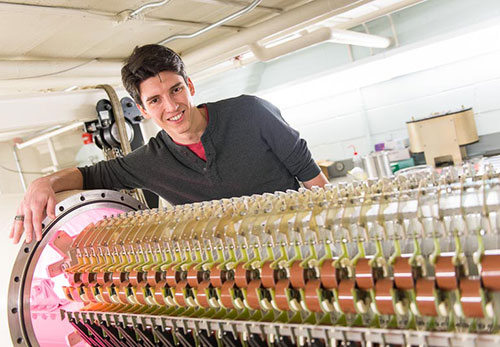 Job Title: Senior Analyst, Corporate Strategy, Exelon
Job Title: Senior Analyst, Corporate Strategy, Exelon
What are you doing now?
As a senior analyst in the corporate strategy group at Exelon, I am responsible for helping develop and define Exelon’s vision of the future and strategic plan. Our group tracks industry and technology trends both directly in the utility sector as well as in tangential sectors to identify our strategic trends and long term actions. The strategy group serves as a nexus between various pieces of Exelon’s business (e.g. utilities, generation, policy, retail, development, etc.) to lead inter-departmental teams on technology-driven initiatives of long-term, strategic importance. We work to address existential questions and challenges facing our businesses and consequently must take a very interdisciplinary approach, calling on resources and expertise from across the company. My role has a particular emphasis on providing technical diligence on a wide range of topics. Exelon has recently made a strategic choice to engage in early-stage energy technology research, and I help curate our technology portfolio as well as relationships with various universities, national labs, and other research centers.
How are you using communication skills in your job?
What my job often boils down to is distilling technical information from research scientists and communicating it to upper management and executives to help them make decisions. In industry, I cannot emphasize enough how important a skill it is to be able to present the value of one’s research in an organized and concise manner. A significant portion of my time is spent trying to find the best way to communicate complex, technical ideas to a variety of different audiences (e.g. board members, executives, vice presidents, lawyers, seasoned utility workers, external experts, etc.). My group is regularly writing and re-writing whitepapers and slide decks of all sizes for all types of audiences.
How did the Comm Lab prepare you for your current role?
The Comm Lab provided me with a community and an environment in which I could experiment, challenge myself, and receive thoughtful feedback. It helped teach me how to take a step back and efficiently identify the core message I need to organize around. This experience and these skills have been invaluable at Exelon, especially when we are meeting tight deadlines. Communication is a skill one is always learning and developing; my experience in the Comm Lab provided me with an excellent foundation to build and grow from. Beyond just writing and presenting, the Comm Lab also helped improve my softer skills, such as how to compose and organize myself (which are absolutely crucial in any commercial environment). I have seen first hand many times how your success in a professional environment (commercial or academic) relies substantially upon people’s respect and perception of you and it can be a very fragile thing to maintain.
Any advice to current students?
While it is easy to get absorbed in the technical minutiae of your work (especially for MIT students), never underestimate the importance of communication skills. It is not enough to simply go through the motions of writing reports and talking through slide decks, you must put in the time and the effort to challenge yourself, and you must seek out opportunities to get critical and candid feedback. Further, strong communication skills are as much about listening as projecting. When you are good at both, you are positioning yourself for unparalleled opportunities to learn and grow. Often times scientists and engineers like to idealize that they work in a pure meritocracy, but the reality is that every work environment requires effective communication in order to value great work. You have a personal brand to build and maintain. The world already expects you to be smart, but you will never be able to change it unless you can command the ear of decision makers.
